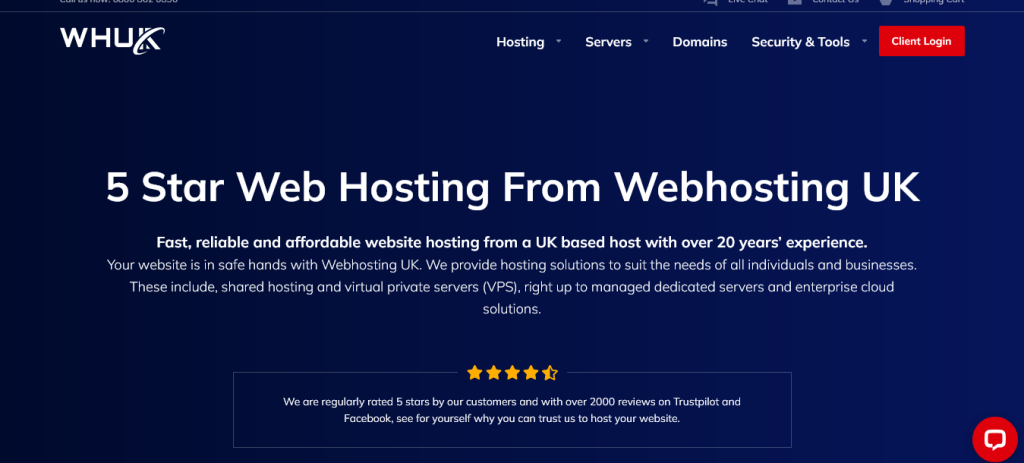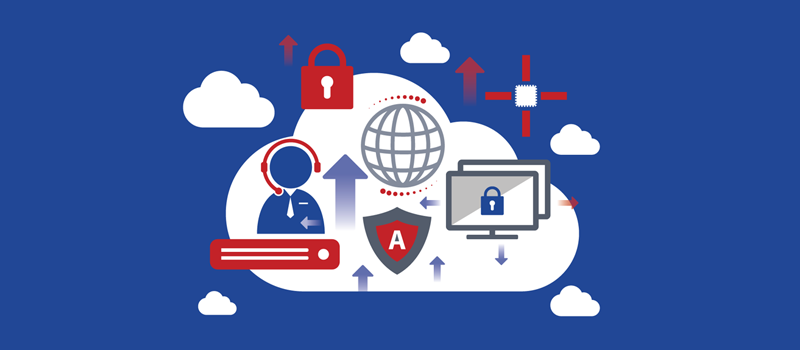Migration to enterprise cloud hosting is becoming increasingly popular with over 60% of larger companies now using it to carry out IT-related tasks. It’s ability to reduce costs by removing capital expenditure and through outsourcing IT management to the service provider has made it especially appealing. In addition, companies know their apps and data are secure, helping them comply with increasingly stringent regulations, such as GDPR.
Choosing the right enterprise cloud hosting service, however, can be challenging, especially if it means migrating your services from an in-house datacentre. To help those companies who are considering such a move, we’ve put together eight things an organisation needs to consider.
- Technical support
As enterprise cloud hosting provides customers with managed services, it means IT tasks will be split between the service provider and the organisation. The service provider will take care of the underlying hardware, server monitoring, OS and patching, etc., whilst the organisation will administer their applications. This split means it is crucial that the two entities are able to communicate with each other on an expert, technical level should issues arise.For this reason, one of the first considerations when choosing an enterprise cloud host is that they provide 24/7, 365 days a year expert technical support. This support should be available via telephone, live chat, email or ticket so that in-house staff have a range of communication options. - High-performance and high-availability
Enterprises should have big demands and high expectations when it comes to the hardware environment of their service provider. In particular, you want exceptional performance and high-availability. For this reason, look for high-performance hardware, such as Intel Xeon CPUs and enterprise-class SSD storage, together with an ultra-reliable, hyper-converged infrastructure whose self-healing architecture guarantees 100% uptime. If you run mission-critical apps that have to stay online, this is essential. - Scalability
One of the biggest advantages of good enterprise cloud hosting is its ability to offer unparalleled scalability. If you need extra computing resources as and when they are required, whether it is to handle peaks in traffic or to run Big Data analyses, you need a host that can provide the goods.Ideally, this should be provided to you on a pay-as-you-go basis so that you are only charged for the extra resources when you use them. This means you not only get the flexibility to scale up or down when needed, but you can also save substantially over the long term.
- Compliance and security
The new GDPR regulation means that companies can be fined up to 20 million euros or 4% of annual global turnover for failure to comply and this is just one of a range of regulations that need to be adhered to. It is critical, therefore, that you choose an enterprise hosting service that takes security and compliance seriously.When it comes to security, look for a host that supplies a range of security measures to protect you, such as FortiGate Next Generation advanced firewalls that provides application security, intrusion, malware and botnet protection, web security and web filtering.
- Control Panel
The quality of the control panel that an enterprise host provides should be an important consideration. The better the control panel, the easier it is for companies to administer their system whilst giving them increased functionality. The market leaders in control panel development are Plesk and cPanel – the Google and Apple of the control panel world, so to speak. Ideally, you should seek a provider who offers these. - Migration assistance
Migrating to the cloud from your own datacentre can be challenging. You have to consider the disruption caused by moving your services: for example, potential compatibility issues between legacy applications and the operating system and the impact of transferring large amounts of data whilst trying to maintain normal operations.A good host will provide expert assistance with migration, helping to spot potential problems before they arise and ensuring that the actual move goes ahead in a planned and controlled manner.
- Provider reputation

One thing that will certainly benefit a company looking for enterprise cloud hosting is to check out the reputation of any potential host. Most reputable companies let customers provide ratings and feedback on their services. You can find these on sites like TrustPilot, Google My Business and Facebook.
No-one knows a service provider better than its customers, so before choosing, take a look at what they have to say about it.
- Cost
While cost is an important factor when choosing an enterprise cloud hosting provider, the quality of service should take the highest priority. And do remember that cloud hosting is, generally, a much less expensive alternative to self-hosting. You don’t need a run a datacentre or buy the servers and IT staff can be deployed to work on more business-related tasks instead of looking after the hardware.When making a comparison between providers, remember that no two hosts or the services they deliver are the same. While staffing an expert technical support team and running state-of-the-art datacentres can mean a more expensive tariff, it does mean you receive a better service.
Conclusion
Enterprise cloud hosting is helping companies make substantial improvements to their businesses and brings a range of benefits. From a hosting perspective, this means access to the best technology whilst saving on capital expenditure, affordable and flexible scalability, offloading server management tasks and improved security and compliance.
If you are looking for five-star rated enterprise cloud hosting, check out our cloud hosting packages.

